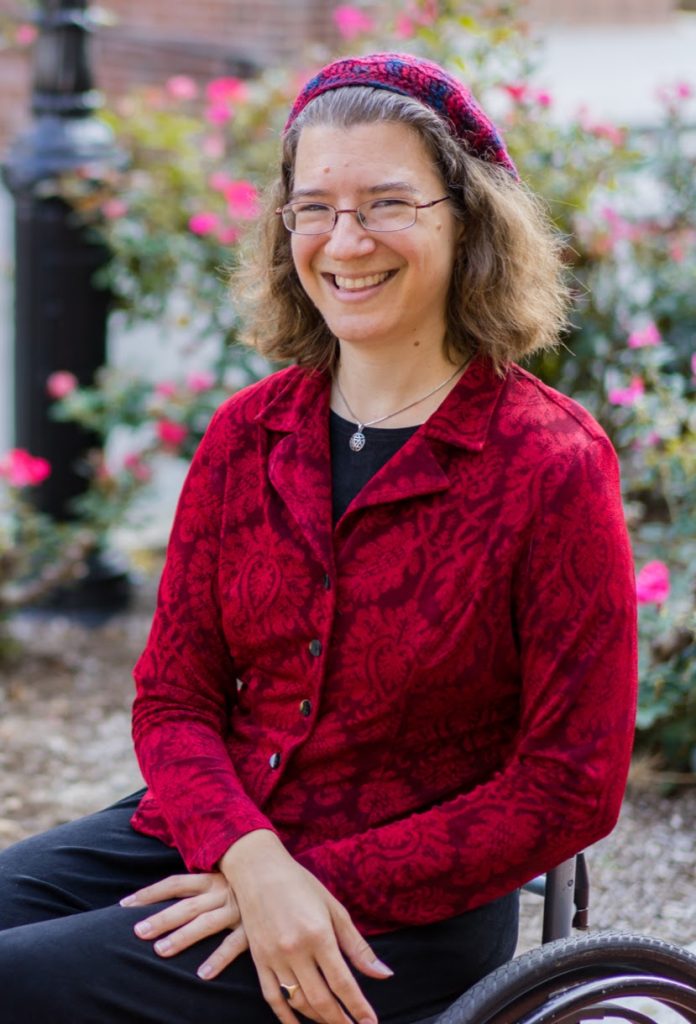STROUM LECTURES IN JEWISH STUDIES 2021 |
Reading Jewish Texts in an Age of Climate Change
In the 2021 Samuel and Althea Stroum Lectures in Jewish Studies, Julia Watts Belser, associate professor of Jewish studies at Georgetown University, uses classic rabbinic Jewish texts to grapple with pressing contemporary questions about climate change and environmental justice, inviting us to tangle with grief, confront vulnerability, and re-imagine possibilities for survival.
Views sources and other readings related to these lectures recommended by Julia Watts Belser: Recommended Reading List
Lecture #1: Grappling with Risk, Reimagining Hope
View the texts referenced in this talk: Handout for Lecture #1
How can Jewish texts help us to think through the social politics of the contemporary climate crisis? Bringing feminist disability insights to ancient Jewish narratives, Julia Watts Belser argues that Jewish stories about the destruction of Jerusalem can be a powerful companion for thinking about climate disruption and the contemporary pandemic. This talk will grapple with the politics of risk, examining how race, class, gender, and disability intertwine to force certain bodies to bear the brunt of the storm. It will also explore how these stories invite us to reconsider the spiritual work of navigating tumultuous change so that we can reimagine hope from within the heart of crisis.
Lecture #2: The Afterlives of Noah’s Ark – Gender, Disability, and the Politics of Survival
View the texts referenced in this talk: Handout for Lecture #2
How do we imagine the promise of survival, the possibility of making it through? In Jewish and Christian communities, Noah’s ark has long been a symbol of divine rescue when the flood waters rise. But it’s also a dangerous cultural template, one where only a chosen few survive. Heeding a powerful call from disability activists and environmental justice movements, this talk asks us to take a hard look at whose lives are deemed worth saving, and whose bodies are able to find shelter from the storm. It will also dive into ancient Jewish texts that grapple forthrightly with the ethical dangers of the Noah story, and that radically reimagine the ark as a space where all sorts of unconventional bodies — even the unicorns — are able to survive.
About the speaker
 Julia Watts Belser is an associate professor of Jewish Studies in the Department of Theology and Religious Studies at Georgetown University, and a Senior Research Fellow at the Berkley Center for Religion, Peace, and World Affairs. Her research centers on gender, ecology, and disability in Talmud and rabbinic literature, as well as Jewish feminist ethics.
Julia Watts Belser is an associate professor of Jewish Studies in the Department of Theology and Religious Studies at Georgetown University, and a Senior Research Fellow at the Berkley Center for Religion, Peace, and World Affairs. Her research centers on gender, ecology, and disability in Talmud and rabbinic literature, as well as Jewish feminist ethics.
She is the author of two scholarly books, Rabbinic Tales of Destruction: Gender, Sex, and Disability in the Ruins of Jerusalem (Oxford University Press, 2018) and Power, Ethics, and Ecology in Jewish Late Antiquity: Rabbinic Responses to Drought and Disaster (Cambridge University Press, 2015).
She has held faculty fellowships at Harvard Divinity School and the Katz Center for Advanced Jewish Studies at the University of Pennsylvania. A rabbi and a longtime advocate for disability and gender justice, her current research examines the critical nexus of climate change, disability, and environmental justice through the prism of Jewish texts.
The 2021 Stroum Lectures series is cosponsored by the School of Marine and Environmental Affairs, the Department of Gender, Women & Sexuality Studies and the Disability Studies Program at the University of Washington, as well as the Washington Coalition of Rabbis.
